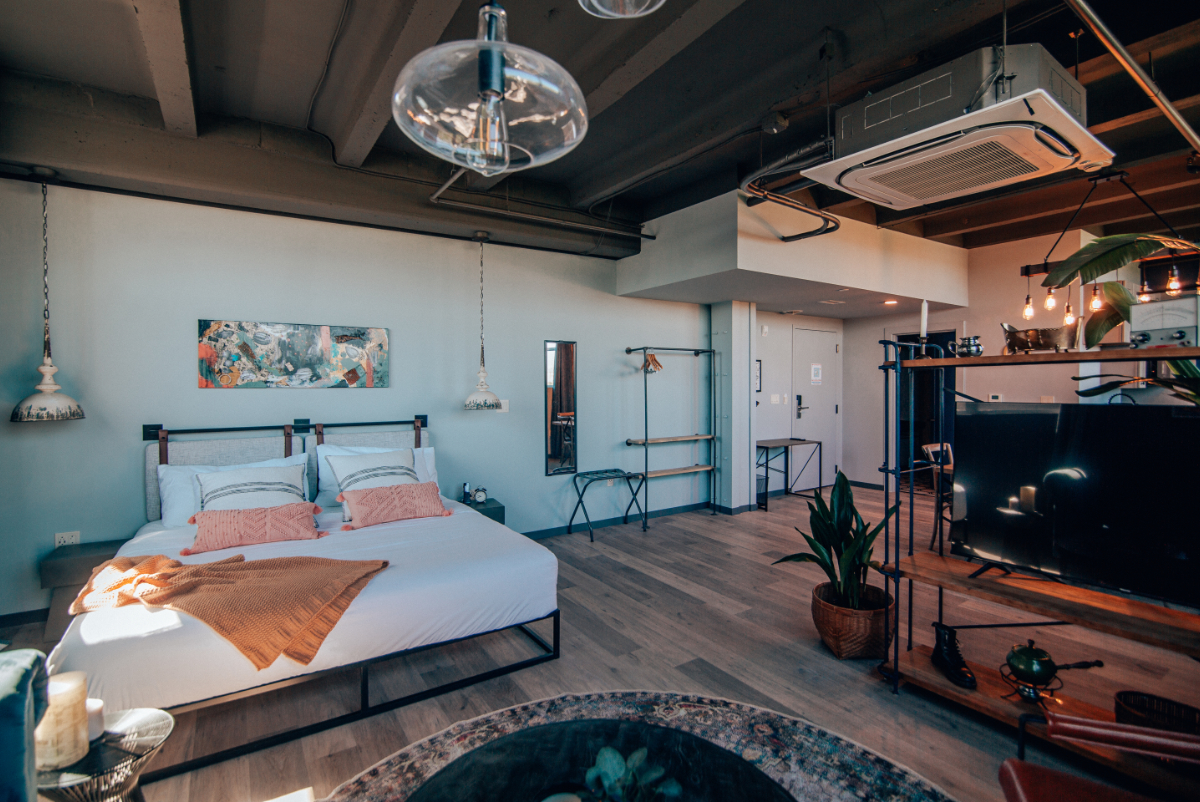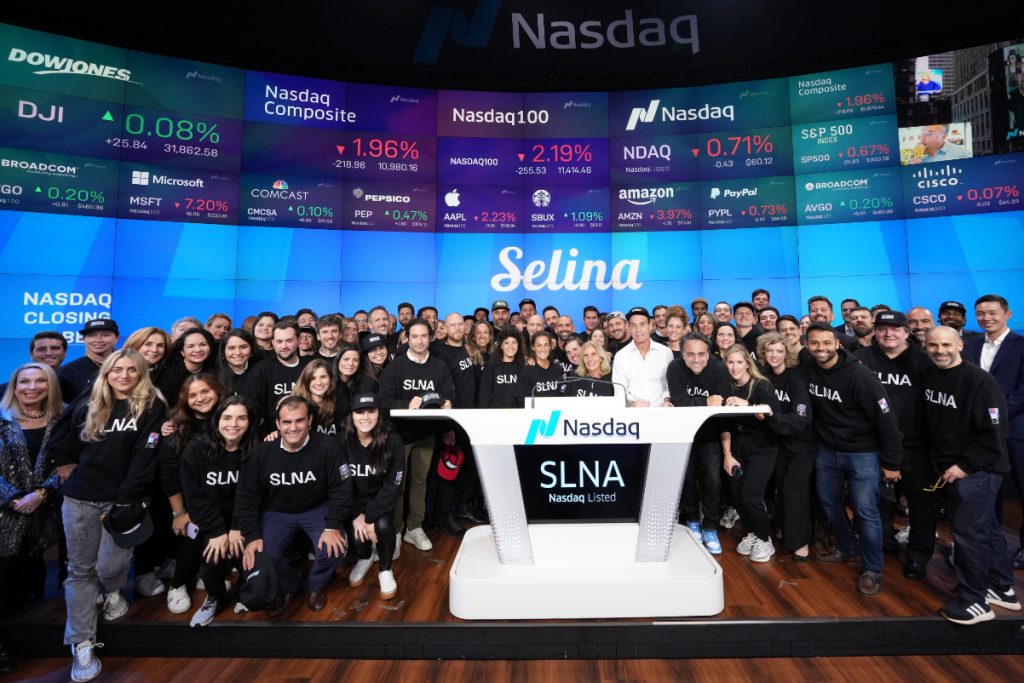Selina Finally Takes Its Millennial Hotel Brand Public in a Stunning Debut

Skift Take
The millennial- and Gen-Z-friendly hotel group Selina debuted as a public company on Thursday, listing after completing its merger with special purpose acquisition company BOA.
It was a stunning first day of trading for Selina, with the stock closing up 319 percent to $40.90 on heavy volume.
Still, the path to the debut was complex. BOA traded on the New York Stock Exchange and closed on Wednesday at $9.45 a share. Selina debuted Thursday under the symbol SLNA on the Nasdaq exchange, starting at $9.75 a share. Final securities filings about the transaction were still pending after its debut. The share price soared in early afternoon trading on another turbulent day for stock markets.
Selina, now headquartered in London, said the deal generated about $54 million in gross proceeds to accelerate growth. That will help the capital-light company continue to offer TikTok-worthy design at its 163 open and secured properties, which it marries with coworking spaces along with easy-to-plug-into recreation, wellness, and local experiences. The core lodging ranges from hostels to premium micro-hotels to tents and lofts.
The transaction also promised $118 million from subscriptions to the $147.5 million principal amount of senior unsecured convertible notes due 2026 that will help fund Selina’s operations.
The public debut let the company escape the trap of needing more venture capital funding, given that startup investors have also pulled back. Selina raised $225 million in funding since its 2015 launch. The startup said it had separately secured more than $300 million over the years from capital partners to acquire real estate and fund its conversion costs.
Challenges and Opportunities
Skift previewed the company's biggest challenges as it goes public. Namely, how can it scale up without creating cookie-cutter experiences that destroy its authenticity and local flavor? How can it scale up while keeping advertising and marketing expenses in check? And can it develop the new, distinct capability of serving corporate travel and meeting planners as it tries to tap into businesses wanting to hold retreats and events at its properties? (The sales effort is different for a business market than a consumer market.)
On the scaling challenge, the company's top boss said his team has been instituting standard operating procedures at all levels to ensure consistency and quality control.
"The biggest challenge is building unique destinations at scale, and Soho House did a good job, Ace Hotels has done a good job," said Rafael Museri, co-founder and CEO.
"We call our strategy 'destination building,'" Museri said. "We keep improving this process. Our 2023, 2024, goal is to make sure each unique destination has excellent content programming and also excellent operations."

During the first half of 2022, Selina had an approximate $4 million loss (in adjusted earnings before taxes, interest, amortization, and depreciation) on revenue of $86 million.
"The market is telling us loud and clear that a profitable, sustainable company is the priority," Museri said. "We're definitely listening to that and doing the required changes to make it profitable faster."
The chief executive pointed to the company's new board of directors which includes many experienced operators, and the company's recent hires, such as Eyal Amzallag, the new chief operations officer and formerly a managing director at Club Med. The company has also halved its losses in the past year.
Selina may be able to keep marketing expenses relatively low for a hospitality company by adapting a playbook Airbnb had used to keep its marketing lower compared to other online travel companies — namely, by maintaining positive word of mouth. Selina claims significantly higher customer satisfaction scores than brands also targeting the youth market, which reflects survey results where guests say how likely they are to recommend the brand.
"Content will always be the game," Museri said. "So Sims [the company's music festival brand] is a content company with its music productions, while Mantra creates content via its wellness and retreat offerings."
Selina executives have long believed that the rising generation of consumers doesn't adopt products because the products are pushed at them on the internet through traditional branding efforts. Alternative methods work better for discovery and marketing, they think. So holding music events, enabling guests to tap into wellness treatments, and helping guests socialize while figuring out how to work remotely in a fulfilling way are all instead the word-of-mouth-driven ways Selina has tried to drive occupancy and repeat business.
The disappointing equity performances of the recent travel companies Sonder, Vacasa, Inspirato, and Mondee that went public in the past year via the special purpose acquisition company (SPAC) have clouded the reputation of that investing genre. The stock market has been in a fickle mood generally, however, as central banks tighten interest rates and pull back on loose monetary policy.
UPDATED: This story was updated with Selina's closing price on Thursday.





